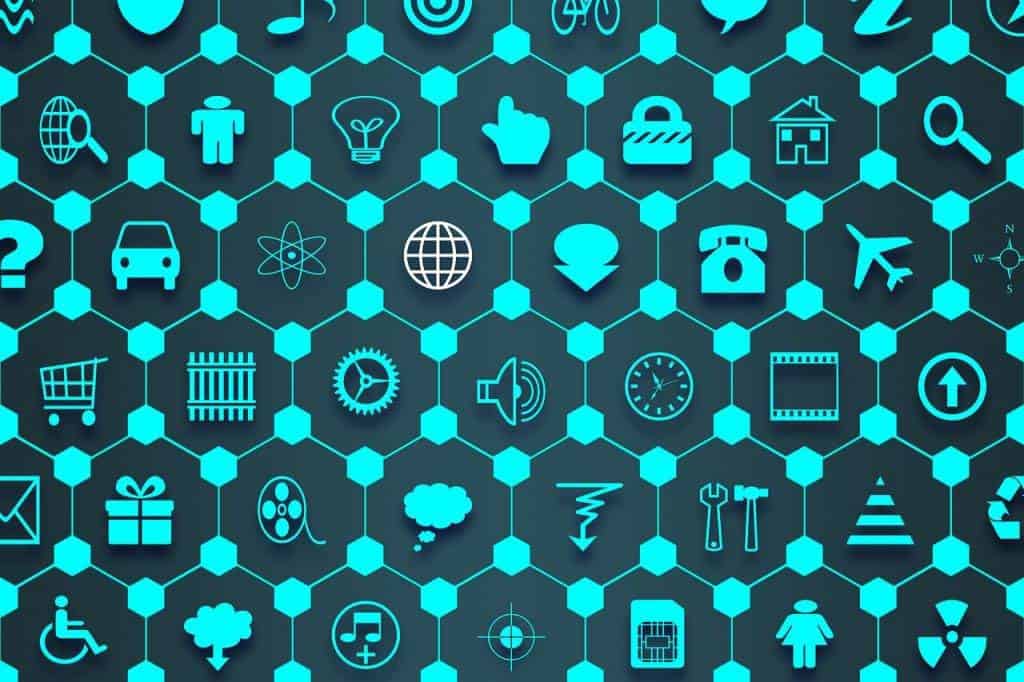Navigating the IoT Software Development Process: A Beginner’s Guide
- August 17, 2023
- Posted by: Chaitali Avadhani
- Category: Custom Healthcare Software Development

The Internet of Things (IoT) is a network of devices that exchange data with cloud and other IoT devices. IoT devices are embedded with software, sensors, and other form of technologies for seamless data exchange over the Internet. The Internet of Things helps people to live and work smartly, for instance, users can use IoT-powered devices such as thermostats and smartwatches to improve their living conditions.
Smartwatches are a great way to keep track of fitness activities and manage vitals. IoT devices are increasingly finding application in the healthcare industry leading to widespread adoption. The number of IoT devices is estimated to double from 15.1 billion in 2020 to more than 29 billion by 2030. The rise in the number of IoT devices is due to a wide range of benefits offered by them which includes:
- IoT software saves time and money
- Helps to generate more revenue for the hospitals and clinics
- Ameliorates patient experience
- Monitors hospital management processes and patient care
- Ensures better business decisions
All of these benefits are driving the adoption of IoT devices, which in turn is giving rise to the growth of IoT software development.
Top Considerations for IoT Software Development
1. Testing
IoT software testing is necessary to ensure that the device is free from bugs and errors. Testing also confirms whether the software is functioning properly or not. QA tests are conducted during and after the IoT software development process. It checks for devices’ security, functionality, and performance. Types of IoT testing include:
- Compatibility Testing: Checking the possible combinations and configurations of varied devices throughout the IoT system.
- Usability: Testing usability for processing data and displaying data, portability of medical devices.
- Security Testing: Check for data encryption when transferred from one device to another. Test for limited access, password protection, and firewalls.
- Performance: IoT devices are checked for scalability, power usage, and data propagation.
- Regulatory Testing: Healthcare IoT devices are checked whether they follow regulatory compliance rules such as HIPAA (Health Insurance Portability and Accountability Act). The IoT software is tested by a regulatory body.
2. IoT Monitoring
Factors monitored in IoT software are cloud, network, and user interface. Methods used for monitoring are
- Setting up alerts to notify if something goes wrong
- Dashboards to have an overview of the system performance and to plan out the next move.
- Automation to mitigate damage and enforce remedial measures.
Continuous monitoring of IoT software allows healthcare development companies to manage IoT infrastructure, fix issues, and eliminate maintenance costs down the road. Monitoring also ensures that IoT devices always have updated software and hardware installed in them. Furthermore, IoT monitoring makes it easier for companies to scale the devices with the rising data and user base.
3. Security
The healthcare industry constantly faces security issues such as data breaches, fraud, scams, financial losses, and ransomware attacks. To safeguard healthcare from these security issues, the government has issued certain regulatory rules like HIPAA and HITRUST. These regulatory compliances protect the privacy and security of ePHI (Protected Health Information), which encompasses patients’ demographics, medical history, lab results, etc.
PHI leakage can harm a patient’s privacy and security and lead to dangerous scenarios like identity theft. Healthcare IoT software development takes place by following these security and compliance rules. Failure to adhere to HIPAA compliance results in criminal charges and penalties that can go up to $50 million. It not only costs organizations money but also harms their reputation, and patients start losing trust.
Components Required for IoT Software Development
Three major components required for IoT software development are as follows:
1. IoT OS
Internet of Things software systems consists of small RAMs, low-powered processing units, and restricted storage. IoT OS is lightweight and not hungry for resources. Some of the OS include:
- Arm Mbed OS: This is an open-source OS and has multilayer security, drivers for Bluetooth connectivity, Ethernet, 6LoWPAN, and WiFi.
- Raspbian: This is optimized for Raspberry Pi hardware and is easy to use.
2. Development Platforms
Developing and launching IoT software starts with a platform, and developers need to consider the characteristics of each platform before finalizing one of them. Some of the popular platforms are:
- AWS: This platform offers several advantages such as multilayered security, AI integration, and scalability. It also provides IoT device connectivity, software, control, and analytics.
- Azure: Microsoft Azure offers IoT platforms with data analysis, collection, and visualization capabilities. Developers use Azure to scale IoT applications and increase interoperability between IoT systems.
- IBM Watson: This platform offers critical risk visualization, online data analysis, and secure implementation of IoT solutions.
3. Programming Languages
Choosing the right programming language is crucial for IoT software development. The code has to be easy and short, even with limited resources. A list of IoT programming languages are:
- Python: This language can handle applications with heavy data, so it is a good option for healthcare as this industry produces surplus data every day.
- Java: Java language is compatible with various devices and is constantly modified to suit the current technological growth.
- C and C++: Both these languages are suitable for the hardware section of IoT medical device software.
Developers take into account all the above aspects for building efficient IoT software for healthcare organizations. This software contributes towards better connectivity and data exchange amongst healthcare providers and patients.
Arkenea is one of the leading healthcare software development companies. We offer IoT-driven custom healthcare software solutions that meet industry standards. If you’re looking for something similar for your healthcare organization, then connect with Arkenea.
